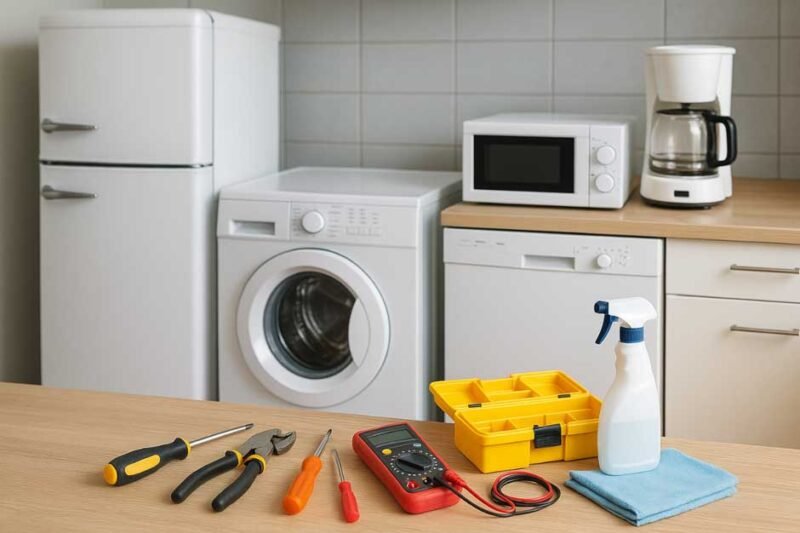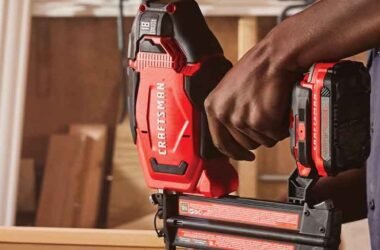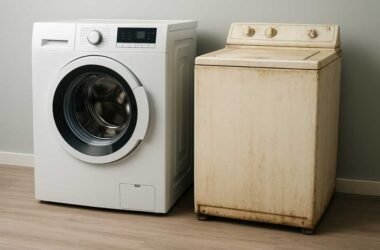If you’ve ever replaced a washing machine out of the blue, you know it’s not fun: money drains fast, stress pops up, and your laundry pile just won’t wait. But here’s a little secret: with the right care, your appliances can stick with you for years—maybe even decades. In this article, I’m pulling back the curtain on expert maintenance tips to help your trusty appliances hum along longer. You’ll get clever, practical advice—from cleaning dryer vents to troubleshooting small fridge issues—so you can avoid the scrap heap. Think of yourself as your own Appliance Repair Expert appliancerepairexpert.ca. Let’s break down how small actions can add up to huge appliance lifespans.
The Value of Proactive Maintenance
Your appliances are like little ecosystems: they need attention before they act up. Skipping a routine coil clean? That clogged buildup forces your fridge to work harder—raising energy use and risking breakdown. Same with dryer lint traps or dishwasher filters: when ignored, they strangle airflow, jam pumps, and shorten lifespan. But wipe them regularly, and you dodge costly repairs. Not only do you save from surprise breakdowns, but you also trim energy bills and keep homes safer. A few simple habits now equals more years of reliable machine performance—plus the peace of “I got this” confidence, according to Keyrenter St. Louis West team.
Key Maintenance Practices for Major Appliances
Let’s get specific. Fridge coils? Vacuum or brush those twice a year to keep cool air flowing. Washer? Clean the drum and gasket monthly—you prevent mold and keep clothes smelling fresh. Dryer? Lint trap after every load, and deep-clean the vent every few months to avoid fire risks. Dishwasher? Run a hot vinegar cycle every few months, clear spray arms and filters. Oven? Wipe up spills and check seals. Each of these small tasks adds up, maintaining peak performance while your appliance ages more gracefully.
Preventing Wear Through Smart Usage
How you use your appliances is just as important as cleaning them. Overloading the washer? That stresses belts and motors. Uneven leveling? The dryer vibrates and wears out fast. Underloading fridges leads to inefficient cooling cycles. A surge protector on refrigerators and freezers shields electronics during storms. Don’t let machines idle—you save energy and reduce standby wear. These simple usage habits aren’t dramatic, but they add years of uptime without requiring fancy gadgets or big investments.
Environmental Factors and Appliance Placement
Location matters. Set fridges and freezers with at least a couple inches of clearance around them so vents breathe. Avoid putting washers in humid basements—moisture causes corrosion. Keep dryers well-ventilated and exhaust outside; otherwise mold builds up. Microwaves should rest on solid shelves away from steam sources. Even big appliances benefit from placement that reduces dust buildup, dampness, or overheating. Giving appliances room to breathe? That’s giving them a longer lease on life.
Smart Troubleshooting Before Problems Escalate
One day your fridge hums oddly. Next, water puddles around the base. Those are clues—don’t ignore them! Strange sounds, inconsistent temperature, leaks, odd smells—all early warning signs. A loose belt? Replace it. A clogged drain? Clear it. A failing filter? Clean it. Some DIY fixes are straightforward, saving you from full-on breakdowns. When it’s beyond your comfort zone—or when gas or electrical risks arise—call a pro to avoid regrets. Early intervention often turns a big bill into a modest fix.
When to Replace Parts vs. the Whole Unit
Sometimes replacement is smarter. If the part costs more than 50% of a new unit or your appliance is 12–15 years old, replacement can make sense. Also, parts for older models may be scarce or pricey. Energy efficiency is another factor—newer models often cut utility use substantially. But if your fridge just needs a gasket or the dryer needs a motor belt, go ahead and fix it. This decision isn’t emotional—it’s smart planning. And hey, snag a second opinion to feel confident.
Practical Tips for Long-Term Appliance Care
Here are a few universal hacks to stay on top of it:
- Schedule consistent cleaning—filters, coils, seals
- Keep a maintenance log: dates, chores, done by whom
- Set reminders for tune-ups every 6–12 months
- Check warranty and recall notices annually
- Get written repair cost estimates before committing
These habits are simple but powerful. They help you catch small issues, plan ahead, and avoid surprise appliance shocks.








